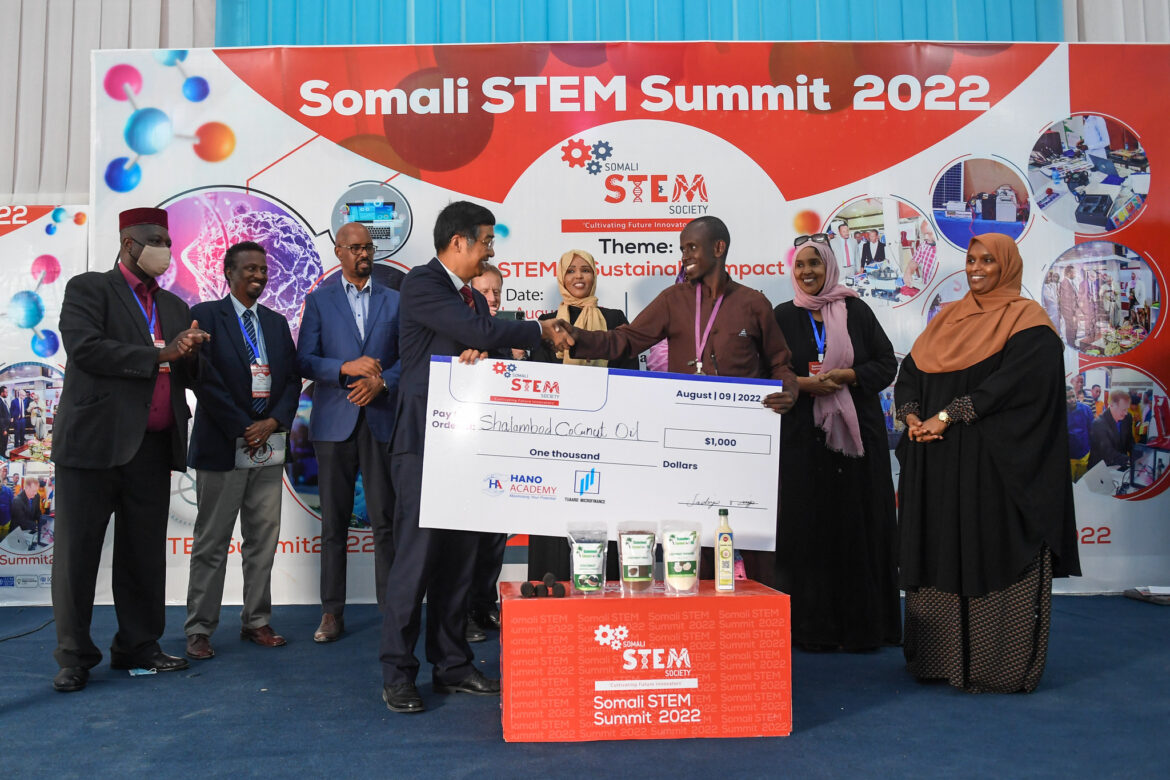Mogadishu, 10 August 2022 – The annual summit on Science, Technology, Engineering and Mathematics (STEM) concluded in Mogadishu on Tuesday, with a call for youth in Somalia to embrace sciences in order to drive the country’s path to sustainable recovery and transformation.
The summit was jointly organised by the Somali STEM Society and Hano Academy, a Mogadishu-based capacity building institute that offers social development skills to youth. The summit took place under the theme “STEM in Sustainable Impact.”
The event aimed to develop solutions for famine, climate change, gender inequality, encouraging girls to pursue STEM careers, link youth with job creators, and develop mechanisms for implementing STEM skills and education to enhance innovation and creativity.
Speaking at the conclusion of the summit, Dr. Sadiyo Siad, the Managing Director of Somali STEM and Chancellor of Hano Academy, urged the youth to become vehicles for change in their country, by bringing forward creative ideas that can enable them to become young entrepreneurs.
“What you have achieved today, is proof of your courage and that as youth you can actually come up with creative solutions to the perennial problems that we face,” said Dr. Sadiyo.
She noted that STEM education would equip youth with skills to improve the quality of life, accelerate progress to achieve the Sustainable Development Goals (SDGs), and provide durable solutions to climate-related hazards such as drought and famine.
A number of officials from the Federal Government of Somalia (FGS), the African Union Transition Mission in Somalia (ATMIS), international partners, academicians, students, and business representatives attended the summit.
The ATMIS Civilian Chief of Staff, Kojo Brew Acquaisie, noted that the summit was timely and relevant to Somalia’s transition and in line with ATMIS’ mandate, especially regarding the sustainable use of the environment.
Mr. Kojo noted: “Part of our transition involves transferring of security responsibilities and the transfer of security responsibilities entails the transfer of forward operating bases. This transfer of the bases starts with ensuring environmental integrity.”
Participants at the summit discussed a number of topics that included climate change adaptation, innovative solutions for floods and droughts, and the role of engineering education in post-war reconstruction and sustainable development.
Other topics included integrating art in STEM and technical vocational education and training, youth employment, job creation and financial investment; women/girls in STEM; agriculture and food security among others.
During the summit, a number of youth exhibited innovations in STEM, and the winner received a trophy and a cash prize for showcasing innovations with business potential.



